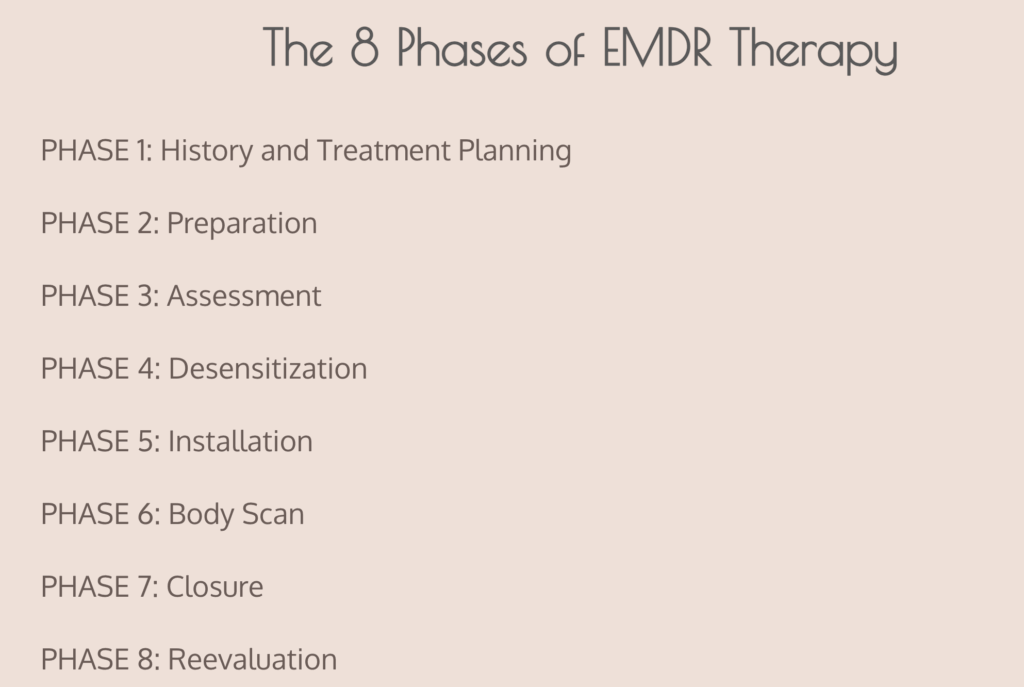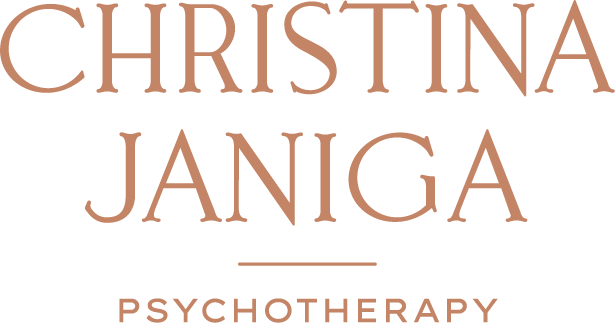EMDR Therapy in Burlington & Virtually Across Ontario
Providing evidence-based trauma psychotherapy, like EMDR therapy to help you heal, reprocess, and move forward. In person at our office in Burlington and virtually online across Ontario.
Your past continues to influence your present and it's exhausting to no end trying to find strategies or people who understand.
Sometimes, specific memories can unexpectedly resurface, causing you to feel like you’re being controlled and causing you to revisit old patterns of avoidance, poor coping mechanisms, self-doubt, and criticism.
Despite your efforts to heal and move forward in your life from these experiences, these memories continue to derail your progress and leave you feeling vulnerable, triggered (again), and unsure of yourself.
Though you’ve been working hard to move past these memories and create the life you want, they still find a way of catching you off guard and creating surges of feeling overwhelmed, on edge, and avoidant, making it incredibly difficult to find the strength and will to engage in your work, your relationships, or the simple things that used to bring you joy.
You've tried talk therapy and nothing seems to help.
EMDR Therapy with our team at Christina Janiga Psychotherapy helps you:
- Understand the effects that trauma has on the brain and gain insight into the ways your circumstances have impacted you.
- From a neurodiversity-affirming perspective you will connect with your trauma through bilateral stimulation (eye movements, sound, or tapping) to process events that are difficult to talk about.
- You will find relief from physical responses to current daily triggers and may even forget that certain situations/objects/places were triggering to begin with.
- You will remove the stuck points of the trauma and start to feel, think, and experience life in a normal way again - much like you did before.
- You will see the type of results you had hoped to achieve from traditional talk therapy much more quickly.
What Can EMDR therapy help with?
EMDR is a therapy method that is intended to help individuals who are ready to address and work through their past traumatic experiences. By using EMDR, individuals can work through the distressing memories, release the feelings of fear, guilt, and shame, and shift the underlying negative beliefs that are preventing them from functioning normally in their daily lives into more positive, adaptive beliefs that make them carry on with life with a recovered sense of confidence, purpose, and joy.
EMDR therapy helps individuals of all ages and can be used to address a wide range of challenges including:
- Anxiety
- Birth Trauma
- Chronic pain
- Depression
- Grief and loss
- Panic attacks
- Performance anxiety
- Phobias
- Post-Traumatic Stress Disorder (PTSD) and other trauma and stress-related issues
- Sexual assault
- Sleep disturbance
- Substance abuse and addiction
- Violence and abuse
You will benefit from EMDR therapy if:
You are interested in learning the ways trauma has affected your brain and nervous system.
You are ready to tackle and process past events that have been causing difficulties in your life, in order to move forward and be in control of your present and future rather than being controlled by your past.
You recognize that past situations (whether traumatic or not) are keeping you stuck and you’re ready to move forward from them.
You realize in addition to negative memories, the constant triggers and avoidance keeps you from moving forward in life.
You are ready to find a way to regulate your emotions so that you feel more stable and grounded in the life you want.
There are certain situations where you might not be ready for EMDR therapy sessions with our psychotherapists at Christina Janiga Psychotherapy. These situations include, but are not limited to:
Instances of severe mental illness
Ongoing difficulties with substance abuse – we do utilize EMDR based protocols for substance use and urges but recommend additional supports for substance abuse.
If you are currently experiencing a severe mental illness or struggling with substance abuse, we recommend you seek outpatient services at a local program within your community. Please see our Resources Page for links to local supports within the Burlington, Halton Region, and across Ontario.
What does an EMDR Therapy sessions look like?
EMDR or eye movement desensitization and reprocessing is a form of trauma therapy that helps unstick the negative memories from painful past experiences by accessing the root of the pain. EMDR is an 8 phase treatment where bilateral stimulation either in the form of eye movements, auditory sounds/music, or tapping are used to access the deep part of your brain that has locked the specific memories hostage. It’s this part of the brain that when “stimulated” by daily life triggers activates your nervous response and makes you feel like you’re reliving the trauma or driving a response in you that you cannot control.
Guided by your therapist through the EMDR techniques these memories are targeted and emotional processing of these events begin shifting into different perspectives and insights with a release and relief of the accompanying emotions.
We call these new insights and release of emotions adaptive shifts – and it feels so much better than the previous maladaptive ones that past old habits of coping don’t seem to be needed anymore.
How EMDR Therapy Works?
In the 8 phases of EMDR therapy, phases 1-2 tend to take about 1-6 sessions (90 minute sessions), and focus on history taking, treatment planning, as well as safety and stabilization. These are important steps to isolating specific target memories and can look a lot like talk-based therapy. We will identify negative beliefs and somatic experiences related to past memories that are contributing to your presenting concerns. Safety and stabilization are foundational in any form of trauma processing work and can include things like grounding and containment skills, imaginary and visualizations, and tools to relieve somatic or body-based distress.
Phases 3-8 are considered to be the “processing” parts of EMDR therapy. Sessions can range from 6-12 (normally 90 minute sessions) for each memory (this is highly dependant on each individual and can vary and fluctuate immensely given the complexity of presenting concerns and trauma history).

EMDR Intensives vs Traditional Weekly Sessions
EMDR therapy can be done both in person (at our office in Burlington) or virtually across Ontario (some exceptions can be made to varying provinces – during our intake calls we can verify if we meet the requirements within your province for providing virtual psychotherapy and EMDR Therapy services).
Traditional talk therapy includes 50 minute session either on a weekly or biweekly basis. EMDR therapy can be completed through this approach. Sessions can range between 12-24 session for single incidents.
In addition to traditional weekly psychotherapy services, our team at Christina Janiga Psychotherapy are trained in EMDR Intensive Therapy. EMDR Intensives are structured as extended session ranging from 90 minutes to a full day session, and can be multiple times during a week or spread across a couple of weeks. This format helps decrease the time it takes over months of therapy to a couple of weeks. We tend to begin with a 90 minute phase 1 EMDR session to collect your history and create a treatment plan suitable to your goals. We then identify the best options for you either through Traditional Weekly Session or through an EMDR Intensive.
Learn More About EMDR Intensives →
Meet Your EMDR Therapists
We understand that seeking help for anything trauma related can be intimidating, and we are here to make the process as easy and comfortable as possible for you.
Our team at Christina Janiga Psychotherapy has extensive experience in helping people overcome painful past experiences and find relief from negative memories and physical responses.
Our therapists are warm, compassionate, and non-judgmental, and we are committed to creating a safe and supportive environment for you to explore your past painful experiences. Within our phase 2 EMDR therapy work, we take time to identify any special considerations for adapting various bilateral stimulation and EMDR therapy language, especially for neurodivergent folk.
If you are ready to take the first step towards healing from your past and living a more purposeful and joyful present life, we invite you to contact us to schedule an appointment.
YOUR NEXT STEPS
Our team at Christina Janiga Psychotherapy have completed EMDRIA approved EMDR training (some are even certified) and we understand the difference between talk type therapy and EMDR therapy. We will utilize EMDR therapy for those that meet the readiness to help you heal from your past and reclaim your joy in daily life. Together, you and your therapist will set goals to reprocess your negative memories, release the difficult emotions, and find the adaptive shifts you’ve been wanting for a long time
Book a free 15 minuted consultation call.
If you are interested in seeking therapy to help you work through these past memories, we encourage you to reach out to us for a free 15-minute consultation. During the consultation, we will answer any questions you have about our practice and our psychotherapists, and help you determine if we are the right fit for you. We believe that feeling comfortable with your therapist is essential for a successful therapeutic relationship.
You don’t need to keep reliving painful memories. With EMDR, healing is possible.
Book your free 15-minute consultation today.
Invest in your healing.
Investing in yourself is an important step towards finding the happiness and fulfillment you deserve. By seeking therapy and working with a trained EMDR professional, you can get to the root of the problems you are experiencing and find solutions that are tailored to your unique needs and goals. Together, you and your therapist will work on healing old wounds and developing healthy coping strategies to help you move forward in a way that feels authentic and fulfilling.
During this initial 90 minute session, you will meet with your therapist to define the psychotherapy relationship and discuss the details of informed consent.
Your therapist will gather information about you and your biological, psychological, and social history and how this is impacting your current situation. Together you will define the goals you have going forward.
For EMDR your therapist will also discuss options for weekly ongoing therapy or EMDR intensive therapy (more information provided below).
Fees vary between therapists.
Commit to at least to 4 weekly 50 to 90-minute sessions (either in person at our Burlington office or virtually online across Ontario).
We find that clients who cannot commit to at least 4 weekly sessions tend to have more difficulty in establishing a relationship with their therapist and often sessions consist of recapping the previous weeks instead of focusing on forward movement and their treatment goals. With EMDR we also find that adjusting the time to 90 minute sessions allows the appropriate time for processing.
Fees vary between therapists.
Commit to at least 3-9 sessions in 1 to 2 weeks. These psychotherapy sessions are extended to anywhere between 90 minutes to 3 hours each (either in person at our Burlington office or virtually online across Ontario).
Once we have confirmed that you’re a good candidate for EMDR Intensive therapy we will provide you a specialized workbook to help prepare you towards your EMDR intensive sessions. Sessions will be booked during your 90 minute intake.
Learn more about EMDR intensives.
Fees vary between therapists.
More about Christina Janiga Psychotherapy
We are a team of skilled registered psychotherapists with a goal is to help you achieve deep and lasting change by getting to the root of your struggles with your trauma, PTSD symptoms, or recurring negative memories.
We believe in the power of therapy to help people overcome challenges and live fulfilling lives. Regardless of the cause, trauma, flashbacks, nightmares, and relentless physical responses to triggers can be debilitating with overwhelming fears that consume your thoughts, get in the way of your relationships, and interfere with your daily life.
No matter how these negative memories are showing up in your life, our Christina Janiga Psychotherapy team of EMDR trained therapists can provide you with the safe and supportive space you need to begin to explore your thoughts, symptoms, and feelings to work towards the goal of finding lasting relief from your painful past experiences.
Frequently Asked Questions about EMDR Therapy
EMDR (Eye Movement Desensitization and Reprocessing) is an evidence-based therapy that helps the brain process distressing memories. Using bilateral stimulation (eye movements, tapping, or sounds), EMDR reduces the emotional intensity of memories so you can feel calmer, more in control, and less triggered in daily life.
The number of sessions depends on your goals, history, and current symptoms. Some clients notice relief after 4–6 sessions, while others with complex trauma may benefit from longer-term work. EMDR can be offered in weekly sessions or as intensives for faster results.
Sessions typically last 60–90 minutes. After discussing your goals, your therapist will guide you through phases of EMDR: preparation, identifying memories or triggers, bilateral stimulation, and integration. You remain fully in control and can pause or stop at any time.
Yes. EMDR is safe when facilitated by a trained EMDR therapist – all our therapists have completed EMDRIA approved basic trainings. We work at a pace that feels manageable, teaching stabilization and grounding techniques first (phase 2 EMDR therapy). If emotions feel overwhelming, your therapist will slow down, pause, or shift focus to ensure safety.
EMDR is effective for post-traumatic stress disorder (PTSD), anxiety, panic attacks, phobias, grief, birth trauma, chronic pain, and performance anxiety. It helps with any distressing memory that still affects how you feel today.
Most people can benefit from EMDR. It may not be recommended if you’re currently struggling with untreated psychosis, severe substance use, or certain medical conditions. Your therapist will assess readiness and help with stabilization before beginning.
An EMDR intensive condenses therapy into longer sessions (90 minutes to 3 hours – or full day) over a few days. This format allows for faster progress and deeper processing compared to weekly sessions. Intensives are especially helpful if you want to reduce symptoms quickly and have dedicated time to work through your concerns.
Session fees vary depending on therapist and session length, typically ranging from $150 to $234. Most extended health insurance plans cover psychotherapy provided by a Registered Psychotherapist. We also offer lower-cost options through our internship program.
Yes, EMDR can be done securely online using video conferencing. Research shows virtual EMDR is just as effective as in-person sessions, and many clients appreciate the comfort and flexibility of working from home.
Yes. We take a neurodiversity-affirming approach and adapt EMDR techniques to meet the needs of autistic clients, ADHD clients, and others who process information differently.
We encourage you to reach out and book an intake session with us. We will explore your location, the regulations within your province, and review if we can provide psychotherapy services virtually. Alternatively, individuals can do a retreat style EMDR intensive at our Burlington, Ontario office. *We do not provided psychotherapy services outside of Canada.
Secure Services
Christina Janiga and associated employees of Christina Janiga Psychotherapy offer both in person and virtual psychotherapy and couselling sessions through secure, Canada-based software called JaneVideo. JaneVideo are secure and encrypted online video platforms that meet all of Canada’s privacy requirements and laws.
For more information, please see the privacy policies of Jane.






